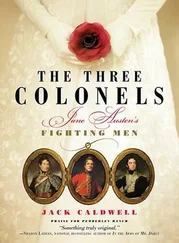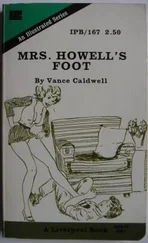The lawyer nodded and stood up to put away a file into a wire tray on a nearby table. Was this a signal that she should leave, she thought. If so, it was rather rude. She had not finished.
He turned towards her, clearly surprised to see her still in her seat. An awkward silence ensued for a moment.
‘So you attended the funeral,’ she asked, to break the stillness.
‘Did I attend, you ask? Who didn’t? The whole town came to pay its respects. The hotel is at the centre of our community. Not only was your mother well known, she was very well respected.’
‘I am pleased to hear that. Though of course, it comes as no surprise, to me.’
There was another moment’s silence, and Mr Gates sat down again. Perhaps he was trying to show a friendlier face.
‘Will you be staying long?’
‘No, I will be heading south soon.’
‘And you will give me a forwarding address?’
‘I will, of course, as soon as I have one.’
That should satisfy him, as should the fact that she intended to remain in Britain, she thought. Although where that address would be was in the lap of the gods.
She rose to leave, but Mr Gates had one more thing to tell her. ‘Your mother’s grave. It is beside your late father’s.’
‘Thank you. I expected as much. That is my next obligation.’
He opened his desk drawer. ‘Before you go, this is your inheritance.’ He handed her the cheque, which he had obviously prepared in advance. She placed it in her handbag.
‘Thank you. Now I must not interrupt your work. I should take my leave,’ she said.
‘Will you be seeing Otto in the near future?’ he asked.
‘That depends, doesn’t it, Mr Gates?’
He nodded. ‘Indeed.’
‘I can assure you I will not be returning to Germany either now, or in the near future.’
They parted on rather better terms, and Hilda felt she had earned his respect by refusing to let him cow her.
That afternoon she set off to St Laurence’s churchyard. She knew exactly where she would find their graves. Chrysanthemums lay withered by her mother’s grave. She placed them in a nearby bin and returned to stand between the two plots. Together again, she thought, at rest and oblivious to the unfolding war. This had been their community. Her sadness, she realised, was that it was no longer hers.
She recalled her childhood with loving parents who had nurtured her curious nature. She asked questions about her father’s time in West Africa during the Gold Coast wars at the turn of the century. That had inspired her spirit of adventure, she concluded, and perhaps led to her moving to Germany. She still loved their language, their robust approach to food, song and dance. However, the dance had turned macabre and she no longer wished to be associated with it. Perhaps one day Otto might find a way back to her, but for now she had no way of communicating with him. Tears filled her eyes as she wondered if she would ever see Otto, Karl and Renate again.
Recalling the tender moments she had shared with her mother and which had given her a sense of security and peace, combined with the sorrow she felt over the loss of both her parents, brought on another flow of tears. Her parents’ spirits were free now; she hoped they were following her progress, perhaps guiding her? One thing, however, was as clear to her as a mountain stream: after she had dealt with the family possessions she could no longer live in Forres.
Back at the hotel, she laid out her mother’s better clothes and invited the women of the hotel staff to take what they wished. She arranged for an auctioneer to take away some small artefacts and the heavy wooden furniture from her parents’ bedrooms. Her father’s roll-top desk had to be dismantled. On taking it apart, she came across a letter which had become wedged under the front drawer. The envelope tore a little as she eased it out.
It was not addressed to anyone, but she recognised her father’s writing. It was dated 3 rdJanuary 1901. The paper was brittle and thin, and stained with water or could it be tears perhaps? On the other hand, maybe it was exposure to the sun which made it so delicate. She opened the letter carefully and read.
As she read, she remembered the way her father had begged forgiveness on his deathbed. The letter spoke of an incident in the Ashanti village of Bekwai, in the Gold Coast. Father had been part of a detachment seeking out Ashanti warriors bent on saving their Golden Stool and fighting the British. The soldiers had arrived at the village and found guns resting against one of the mud houses. Father gave the command to shoot at the house. No sooner were shots fired than a young female child came out of the house screaming and holding her younger brother in her arms. He was dead, hit by one of their bullets. It would haunt her father all his life. He had never told Hilda about this sad incident, or his wife, yet it seemed clear that the forgiveness he sought stemmed from that moment. She sent up a brief prayer of forgiveness; after all, she too had innocent blood on her hands. It appeared it was the nature of war, though the thought gave her no comfort. Perhaps such pernicious decisions were made with good intentions, but the best intentions could never excuse murder.
In many ways, she would be glad to leave the town, the people, the hotel and the churchyard without looking back, though the memories would go with her. She had a future to face, but for the moment had no idea where it would take her.
She had been in Forres for eleven days and was growing anxious to leave. She telephoned London.
‘Hello, Mr Dynes?’
‘Yes, Hilda. I hope you are well. So what news do you have?’
‘Only that I want to leave Forres.’
‘Well, we’ve much better news for you. I cannot tell you on the phone. Can you come to London?’
‘Tomorrow?’
‘Excellent, yes tomorrow. Come to our office.’
She took the sleeper from Inverness to London, a journey of thirteen hours, most of which she spent asleep, soothed by the rattle of the rails. Passengers learned there was some diversion en route, but no more information was forthcoming. In fact, the first she heard of it was when the attendant arrived with a welcome cup of tea at six thirty in the morning.
She arrived in London two hours later and immediately saw that the city was in a state of anxiety. Gas masks hung round everyone’s necks, and the notorious London fog lent a sense of mystery to the streets. As the hour approached nine thirty, she was relieved to see the pea souper fog begin to lift.
There was just enough time to grab a quick coffee and scan the newspaper at the Lyons Corner House. There was no significant news of the war in that morning’s edition, but Parliament’s condemnation of German aggression devoured entire columns. Hilda turned to the crossword, and before she had finished her coffee, no white squares were empty.
Chapter 20
London and a Celebration
She felt at home in London again and began to feel city life was her natural environment. She could hide and be absorbed into the bustle of activity, something that was not possible in the rural surroundings of her childhood and adolescence. The Portuguese coast had been rural too, and even though she had spent only a short time there, it had left her feeling exposed and conspicuous. London, even in its darkest hour, was where she felt safe. All the same, the war had created an almost palpable tension among the people, as if they walked around half-expecting something evil to happen. It surprised her that it had not yet destroyed the heart of the city; she knew how effective the German forces had found the blitzkrieg over Warsaw, Amsterdam, Paris and Oslo. How soon would London experience the destructive strength of German airpower and Hitler’s might?
Читать дальше












